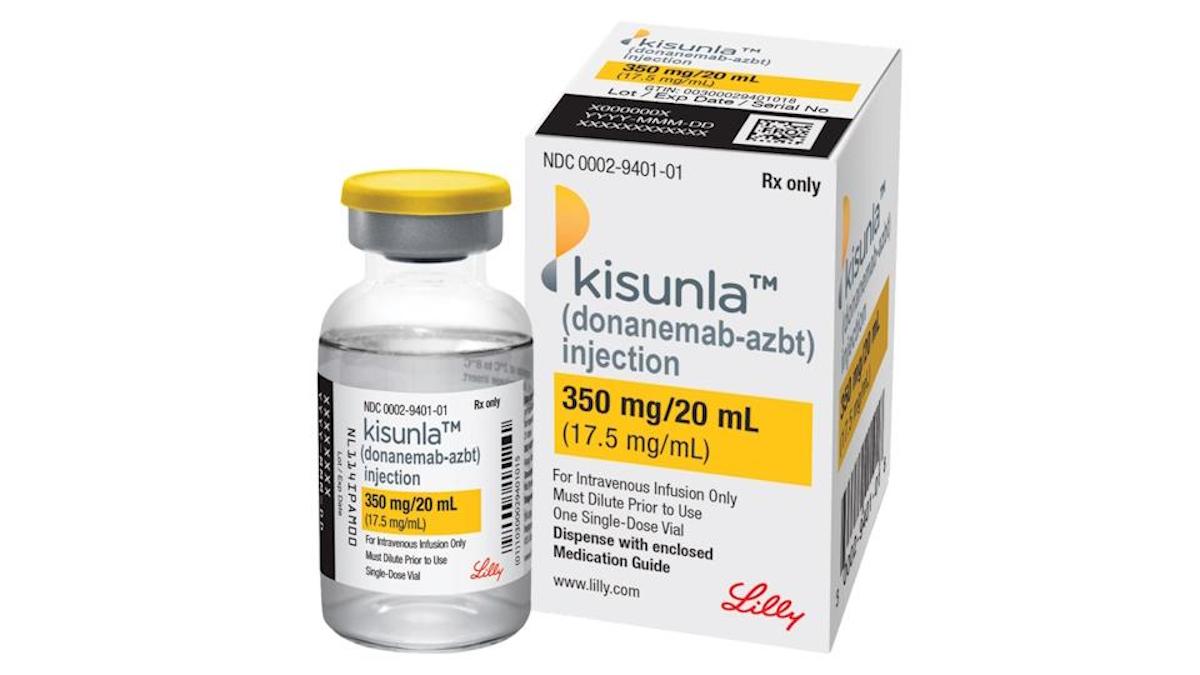Lilly's Alzheimer's drug Kisunla is cleared in China

Eli Lilly has chalked up another regulatory approval for its anti-amyloid therapy for Alzheimer's disease, Kisunla, in China – the world's second-largest pharma market.
The National Medical Products Administration (NMPA) has cleared Kisunla (donanemab) or adults with early symptomatic Alzheimer's disease, including mild cognitive impairment (MCI) and mild dementia stage with confirmed amyloid pathology.
China is the fourth major market where Kisunla has been approved after the US, Japan, and GB. It gets the green light there almost a year after Eisai and Biogen's anti-amyloid rival Leqembi (lecanemab), which was cleared by the NMPA in January.
The country is expected to be a major market for both drugs, thanks to a rapidly ageing population and a higher prevalence of the disease than the global average. According to Lilly, nearly 6% of people over the age of 65 are living with Alzheimer's and related dementias, while around 11% in that age bracket are expected to be living with the disease by 2050.
The jury is out on the sales potential of Kisunla and Leqembi, which have seen pushback on the grounds that they deliver modest cognitive benefits, raise the risk of potentially serious side effects, and are too expensive to be cost-effective. Lilly recently generated clinical trial data with a new starting regimen that seems to improve Kisunla's safety profile.
After a sluggish start for Leqembi, Eisai and Biogen saw signs of stronger uptake in the middle of this year, raising their sales 2024 forecasts for the drug, but reined them in again after a slowdown in the third quarter. Lilly hasn't yet revealed any sales figures for Kisunla, which was approved in its first market, the US, in July.
The slow uptake could stem in part from a disparity in physician attitudes to the new drugs, with some seeing them as an important new treatment option for Alzheimer's – the first with the potential to be disease-modifying – while others remain cautious about their net benefits and cost.
Kisunla's approval is based on the phase 3 TRAILBLAZER-ALZ 2 trial, which showed that Kisunla slowed cognitive and functional decline by 35% compared with placebo on the integrated Alzheimer's Disease Rating Scale (iADRS), which was a statistically significant difference.
Lilly has said that its drug has advantages over Leqembi, including approval for use only until amyloid plaques are cleared from the brain, while Eisai and Biogen's label calls for continuous treatment, and a once-monthly dosing schedule that requires fewer visits to infusion clinics.
"Patients and their families want and deserve access to treatment with amyloid targeting therapies, which could give them more time to do the things that matter most to them in the early symptomatic stage of the disease," remarked Ilya Yuffa, president of Lilly International.
"Kisunla continues to demonstrate very meaningful results for people with early symptomatic Alzheimer's disease and can now help to improve the standard of care for people living with the disease in China," he added.












